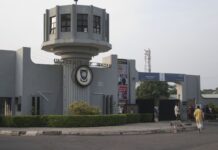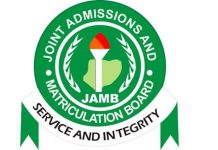The federal government has written off 60 per cent of the N7 billion owed by radio and television stations in licensing and renewal fees.
The N7 billion owed to the federal government by the broadcast industry is the total outstanding from television and radio stations on renewal of their operating licences.
The government also slashed the existing licence fee by 30 per cent for all open terrestrial radio and television services with effect from July 10.
The minister of information and culture, Mr. Lai Mohammed, disclosed stated this at a press conference he co-addressed with the acting director-general of the National Broadcasting Commission, Prof. Armstrong Idachaba, in Abuja yesterday.
He said any station that is unable to pay the balance of 40 percent indebtedness within the three months’ window shall forfeit the opportunity to enjoy the stated debt forgiveness.
The minister stated that the federal government’s good gesture was to ensure financial sustainability among broadcast stations in the country amidst global impact of COVID-19.
He said the debt relief offer which does not apply to pay television operators in Nigeria, would open on July 10 and close on October 6, 2020.
The minister said the measures announced were aimed at giving a lifeline to the broadcast industry, which, he said, had been affected by the COVID-19 pandemic.
“The existing license fee is further discounted by 30 per cent for all Open Terrestrial Radio and Television services effective July 10th, 2020. The debt forgiveness shall apply to functional licensed terrestrial radio and television stations only.
“The debt forgiveness and discount shall not apply to pay TV service operators in Nigeria. The effective date of the debt forgiveness shall be July 10th 2020 to October 6th, 2020.
“As you know, the COVID-19 pandemic has affected all sectors of the nation’s economy. The broadcast industry has been particularly hard-hit due to falling revenues occasioned by the dwindling adverts and sponsored programmes, in the wake of the pandemic,” said Mohammed.
He added: “According to the NBC, many Nigerian radio and television stations remain indebted to the Federal Government to the tune of N7bn.
“Also, many of the stations are faced with the reality that their licences will not be renewed, in view of their indebtedness.
“Against this background, the management of the NBC has therefore recommended, and the federal government has accepted, the following measures to revamp the broadcast industry and to help reposition it for the challenges of business, post-COVID-19:
“(a) 60 per cent debt forgiveness for all debtor broadcast stations in the country; (b) the criterion for enjoying the debt forgiveness is for debtor stations to pay 40 per cent of their existing debt within the next three months.
“(c) Any station that is unable to pay the balance of 40 per cent indebtedness within the three-month window shall forfeit the opportunity to enjoy the stated debt forgiveness.
“(d) The existing license fee is further discounted by 30 per cent for all open terrestrial radio and television services effective July 10, 2020.
“(e) The debt forgiveness shall apply to functional licensed terrestrial radio and television stations only. (f) The debt forgiveness and discount shall not apply to pay TV service operators in Nigeria.”
When asked what the government was doing about the print media industry, the minister said he was waiting for the leadership of the Newspapers Proprietors Association of Nigeria (NPAN) to provide him with information based on their agreement during a webinar he had with members recently.
He said engagements were on as he had already discussed the matter with the governor of the Central Bank of Nigeria (CBN), Mr. Godwin Emefiele.
On the “Pay as you view” policy being proposed for the PAY TV stations, Mohammed said it was the way to go.
He said the conclusion from his recent appearance before the House of Representatives was that the policy could be implemented in Nigeria.























































